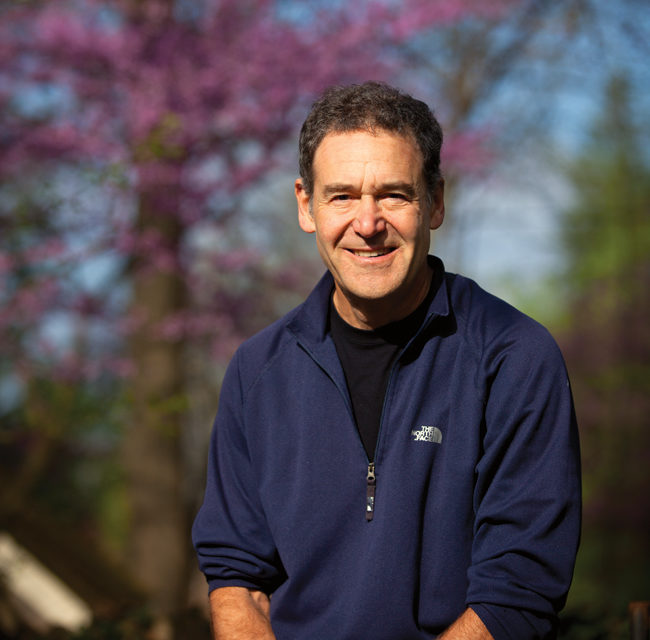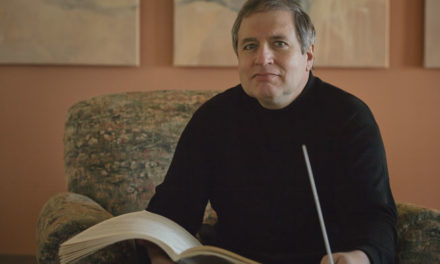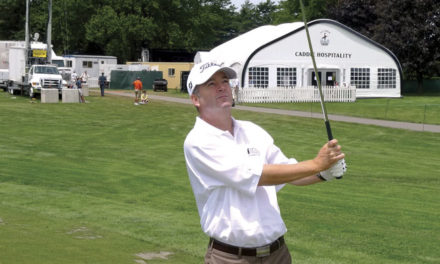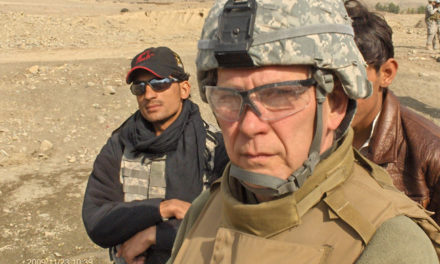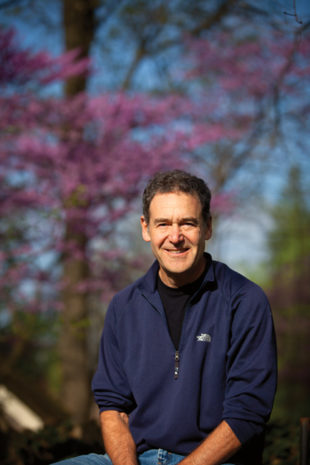
Michael Hamburger, an expert on natural disasters. Photo by Nicholas Demille
BY ELISABETH ANDREWS
If you’re committed to sustainability, you should probably be thinking about earthquakes and volcanoes, says geologist Michael Hamburger.
“Natural disasters are the true test of the resilience and survivability of a civilization,” he explains. “It’s clear when you look back at history—at events like biblical-era earthquakes and the volcanic eruption that destroyed the Minoan civilization—natural disasters are really the major stress to physical, environ-mental, and social systems.”
Since the 1970s, Hamburger has been studying the interactions between large-scale geological processes and human societies. His focus on preparedness also incorporates research on “induced seismicity”—geological events influenced by human activity. His early fieldwork on this topic, beginning in 1978, made him one of the first American scientists permitted in what was then the Soviet Union.
“That was the deep, dark, Brezhnev era,” he recalls. “We were in regions that had been closed to outsiders for decades, and we were very much being monitored by the KGB.”
Hamburger’s assignment was to examine the potential impact of dams that were being constructed in mountainous areas with high earthquake risk. His work, he says, gave him an up-close look at the intersection of science and politics, revealing how macro-level decisions resulted in real-life implications for local communities.
Twenty years later, after becoming an IU professor, Hamburger applied this same type of multilevel analysis to the university’s plan to convert the woods by Griffy Lake into a golf course. He organized a group of students, faculty, and community members to persuade the administration to set the area aside as a research and teaching preserve. “We stepped in to what seemed to be a done deal, and realized we could be empowered to better align the plan with the university’s academic mission,” he says.
Hamburger has remained at the center of campus environmental efforts for many years, helping to shape IU’s first formal sustainability initiative. He has also continued his international research and outreach efforts related to hazard mitigation, with a recent focus on the Pacific Rim.
One of his most cherished activities, though, is a class that aims to provide students with the type of eye-opening experience he had in his early research. Each year, Hamburger takes a group to students to the Sierra Nevada mountain range to learn firsthand about geology.
“We discuss economic and environmental issues while observing the evidence of volcanic and tectonic history,” he says. “For a lot of students, it’s a life-changing experience.”


